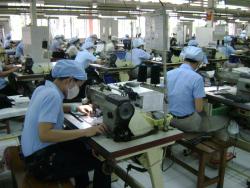Free Trade Agreement: Eyed as Solution to SOEs

Free trade agreements are presently being arranged between Vietnam and a group of trading partners in hopes of reforming State-Owned Enterprises (SOEs).
SOEs are known to have certain unfair advantages over private sectors. In theory, they paint a working market system that is both equal and competitive with its counterparts. But in reality, nothing of the sort is being implemented as it is obviously favored over its private counterparts. It enjoys such privileges as preferred access to loans; tax exemptions; and investment and loan procurements, among others. Yet despite these market edge, they suffer from bad management, low profits and inefficiency. These concerns then are what pushed for the implementation of the free trade agreement to once and for all create a competitive market between the public and private enterprises.
Trans-Pacific Agreement (TPP) and Free Trade Agreement (FTA) are American-led and European-run agreements, respectively, which will be signed at the end of 2014 and will start a healthy competition between state-owned and private-owned companies. This will force the Vietnamese government to restructure its system because the particular agreements will require the state to obey the Agreement on Government Procurement. This means that it has to change its market system, increase its competitiveness, reform and speed up its reconstruction, and be transparent in its operation. The new agreement will also sanction violators so this creates an even greater pressure than during the World Trade Organization to overturn its market system to make it competitive with the private sector.
The garment sector is a concrete manifestation of the inefficiency of SOEs, even in their reconstruction efforts. Blaming capital shortage as the cause of the industry's loss, the government sees lowering import taxes as the answer to the problem. It plans to decrease import taxes from 17%-32% in the United States, Canada, Australia and Japan. It even aims to reach a 0% tax in such imports on the condition that every piece of string, button and yarn used in a garment will have to come from Vietnam, and the components to be imported from China and South Korea. This is the “yarn-forward rule” which the state deems necessary in order to salvage the garment market in the country because it employs outsourcing in exporting its products and doesn't have its own factories to produce yarn and textile.
The Vietnam government has only gone so far as to have its reconstruction plans approved by local agencies. The implementation part is something that needs to be worked on. Privatizing government-owned firms and creating long-term goals are just some of the things that need to be done. Although it will always take hard work and a long time to make something run efficiently especially in the case of government plans, it will take even more determination and dedication by the state to eliminate its special privileges and this time compete fairly in the free market like everyone else. When such a thing is achieved, there's really not much need anymore for SOEs since the free market agreement will create an equal playing field for both public and private sectors, as it should be.









